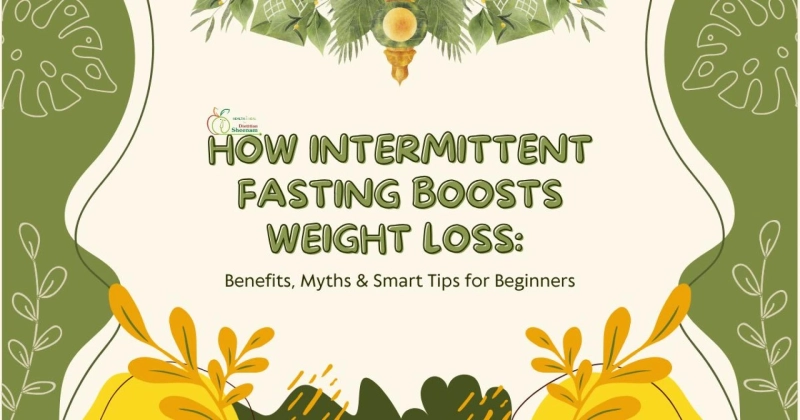Intermittent fasting (IF) has gained significant attention as a potential strategy for weight loss and overall health improvement. By alternating periods of eating and fasting, this approach aims to optimize the body's metabolic processes. In this comprehensive guide, we'll explore how Intermittent Fasting for weight loss works, its benefits, common myths, and practical tips for beginners.
Understanding Intermittent Fasting
Intermittent fasting isn't about restricting the types of food you eat but rather when you eat them. The most popular methods include:
- 16/8 Method: Involves fasting for 16 hours each day and restricting eating to an 8-hour window. For example, eating between noon and 8 p.m.
- 5:2 Diet: Entails consuming a regular diet five days a week, while limiting intake to 500–600 calories on the remaining two non-consecutive days.
- Alternate-Day Fasting: Alternates between days of regular eating and days where you either fast completely or consume a minimal amount of calories.
Benefits of Intermittent Fasting for Weight Loss
Several studies have highlighted the potential advantages of intermittent fasting:
- Enhanced Fat Burning: Fasting periods may increase the body's reliance on fat stores for energy, promoting fat loss.
- Improved Insulin Sensitivity: Intermittent fasting can lead to reductions in insulin resistance, lowering blood sugar levels and potentially decreasing the risk of type 2 diabetes.
- Simplified Meal Planning: With fewer meals to prepare and consume, individuals may find it easier to adhere to a structured eating pattern.
Debunking Common Myths
Despite its popularity, several misconceptions about intermittent fasting persist:
- Starvation Mode Concerns: Some believe that fasting induces "starvation mode," slowing metabolism and hindering weight loss. However, short-term fasting may actually boost metabolic rate.
- Muscle Loss Fears: There's a misconception that fasting leads to significant muscle loss. In reality, studies suggest that intermittent fasting can preserve muscle mass while promoting fat loss.
- Skipping Breakfast is Harmful: While breakfast is often dubbed the most important meal, intermittent fasting challenges this notion by showing that meal timing can be flexible without adverse effects.
Smart Tips for Beginners
Embarking on an intermittent fasting journey requires careful planning:
- Consult a Professional: Before starting, seek advice from a healthcare provider or the Best Nutritionist for weight loss in Punjab to ensure it's appropriate for your individual health needs.
- Stay Hydrated: Drink plenty of water during fasting periods to maintain hydration and help manage hunger pangs.
- Prioritize Nutrient-Dense Foods: During eating windows, focus on consuming balanced meals rich in vitamins, minerals, and other essential nutrients.
- Gradual Implementation: Begin with shorter fasting periods and gradually extend them as your body adapts.
- Listen to Your Body: Pay attention to hunger cues and energy levels, adjusting your fasting schedule as needed.
Conclusion
Intermittent fasting offers a flexible approach to weight loss that aligns with many individuals' lifestyles. By understanding its benefits and dispelling common myths, you can make informed decisions about incorporating it into your routine. For personalized guidance, consider consulting the Best dietitian for weight loss in Punjab to develop a plan tailored to your goals and health status.
Also Read: Top Foods to Include in Your PCOD Diet Chart



